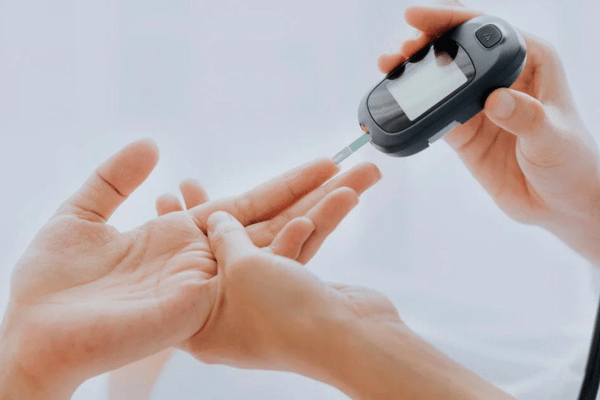- +91 84200 70081 / +91 8420070082 Call Us Now
- info@healthyheartmission.org Drop Us a Line
Diabetes

What is Diabetes?
Diabetes is a chronic condition that occurs when the body is unable to produce or properly use insulin, a hormone that regulates blood sugar levels. High levels of blood sugar can damage organs and lead to various complications, including heart disease
Why does it occur?
Diabetes can be caused by several factors, including genetics, lifestyle factors, and medical conditions. Type 1 diabetes occurs when the body’s immune system attacks and destroys the cells in the pancreas that produce insulin, while type 2 diabetes occurs when the body is unable to produce enough insulin or becomes resistant to insulin.
Both types of diabetes are associated with an increased risk of heart disease due to several factors, including high blood sugar levels, high blood pressure, and abnormal lipid levels.

Treatment
- Lifestyle changes: Making healthy lifestyle changes can help manage blood sugar levels and reduce the risk of heart disease. This may include following a healthy diet, engaging in regular physical activity, quitting smoking, and managing stress levels.

- Medications: Several medications can be used to treat diabetes, including insulin, oral medications, and injectable medications. These medications work by either increasing the production of insulin or improving the body’s ability to use insulin.
- Monitoring: Regular monitoring of blood sugar levels is important to ensure that diabetes is under control and to make any necessary adjustments to treatment.
Conclusion
Diabetes is a chronic condition that occurs when the body is unable to produce or properly use insulin, leading to high blood sugar levels. Both type 1 and type 2 diabetes are associated with an increased risk of heart disease due to several factors, including high blood sugar levels, high blood pressure, and abnormal lipid levels. Treatment for diabetes may include lifestyle changes, medications, and regular monitoring of blood sugar levels. If you have diabetes, it is important to work with your healthcare provider to develop a treatment plan and reduce the risk of complications, including heart disease.
